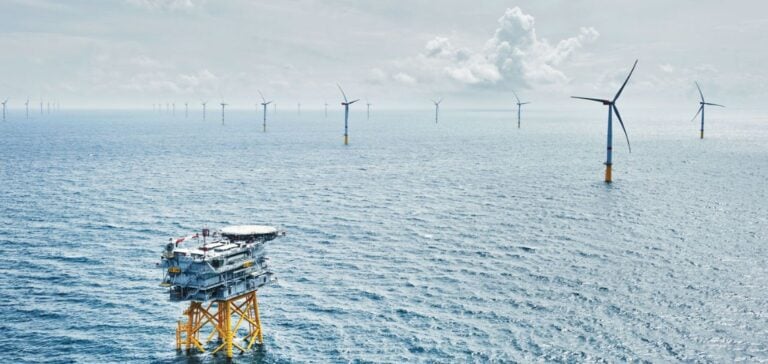Vattenfall announces the temporary shutdown of the Kriegers Flak offshore wind project in Sweden.
The project, approved in 2022 for commissioning in 2028, aims to generate 2.7 terawatt-hours (TWh) per year.
The company points out that the lack of a connection solution provided by the Swedish Transmission System Operator (TSO) makes the initiative uneconomic under current conditions.
The absence of an offshore connection point, unlike the approaches adopted by Germany and Denmark in their similar Baltic Sea projects, means that Vattenfall has to consider building its own connection to land.
This constraint represents a cost increase of around 25%.
Against this backdrop, Helene Bistrom, Head of the Wind Division, points out that these factors are holding back any final investment decision for this and other offshore wind initiatives in the country.
Rising costs and an uncertain context for offshore wind power
The offshore wind industry is facing rising costs and logistical and regulatory complications.
Over the past three years, the price of raw materials such as steel has soared, significantly increasing the cost of building and installing wind turbines.
Supply chain problems, compounded by geopolitical and economic tensions, are further slowing project development.
Against this backdrop, Vattenfall remains cautious about its financial commitments in Sweden.
Early-stage wind power projects continue to progress, but no final investment decisions have been made until conditions improve.
The company is closely monitoring developments in the Swedish regulatory framework, and the development of future projects will depend on the implementation of clearer measures for grid connection.
Investment strategies and adjustment of priorities
In the offshore wind sector, strategy is increasingly based on a detailed analysis of market conditions and regulatory frameworks.
Vattenfall’s situation in Sweden reflects a broader trend, where investment decisions must incorporate not only rising costs, but also regulatory uncertainty and fluctuating government policies.
In more favorable markets, Vattenfall and other energy companies are pursuing offshore wind projects, where connection conditions are better defined and infrastructure is in place.
However, in Sweden, without swift action by the authorities to clarify the role of the TSO and implement incentives, the development of new projects could be seriously delayed.
Implications for the Swedish offshore wind market
The temporary shutdown of the Kriegers Flak project sends a strong signal to the industry about the need for stable and predictable market conditions.
Investors expect clear commitments from the authorities to secure connection infrastructures and minimize additional costs.
This is particularly crucial in an environment where operating margins are tightening.
This situation could prompt other players in the sector to reconsider their projects in Sweden and turn to more mature or transparent markets.
The evolution of Swedish energy policy will therefore be decisive for the future of offshore wind power, and could either attract or postpone future investments in the country.






















